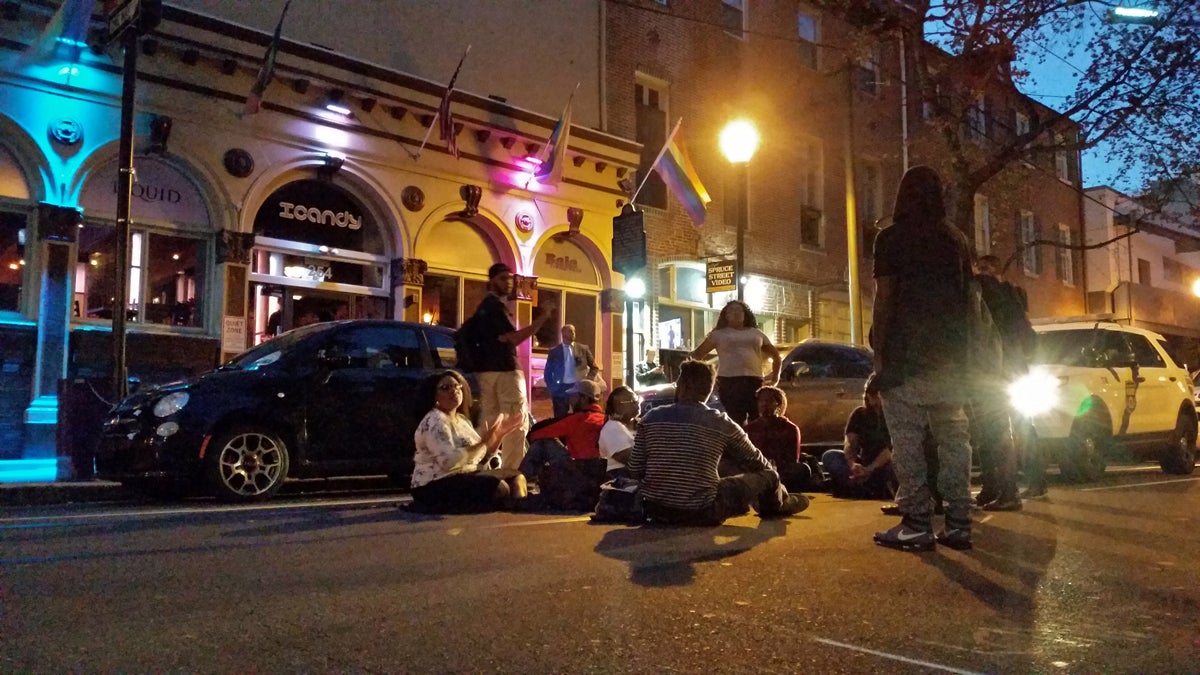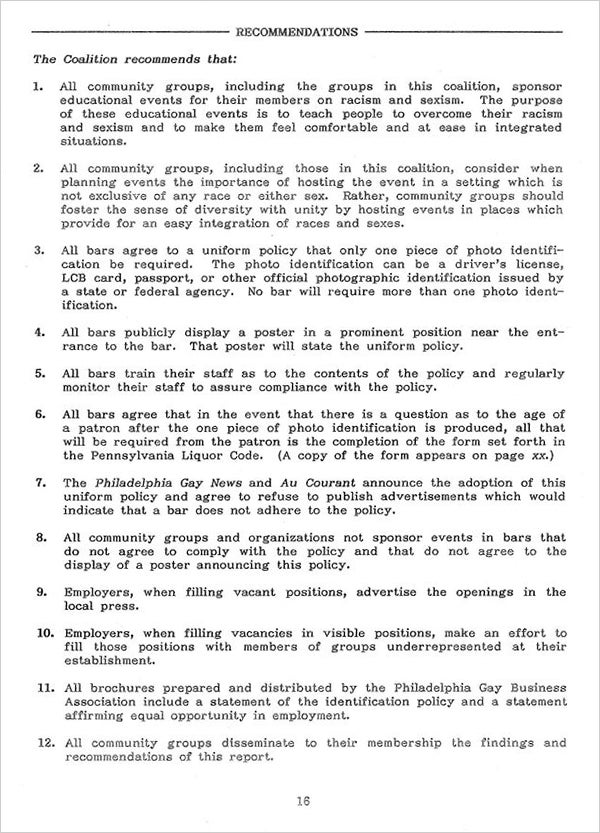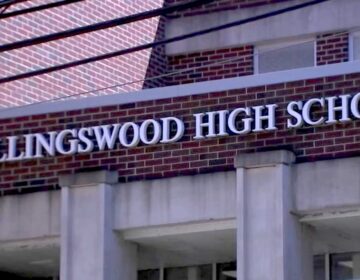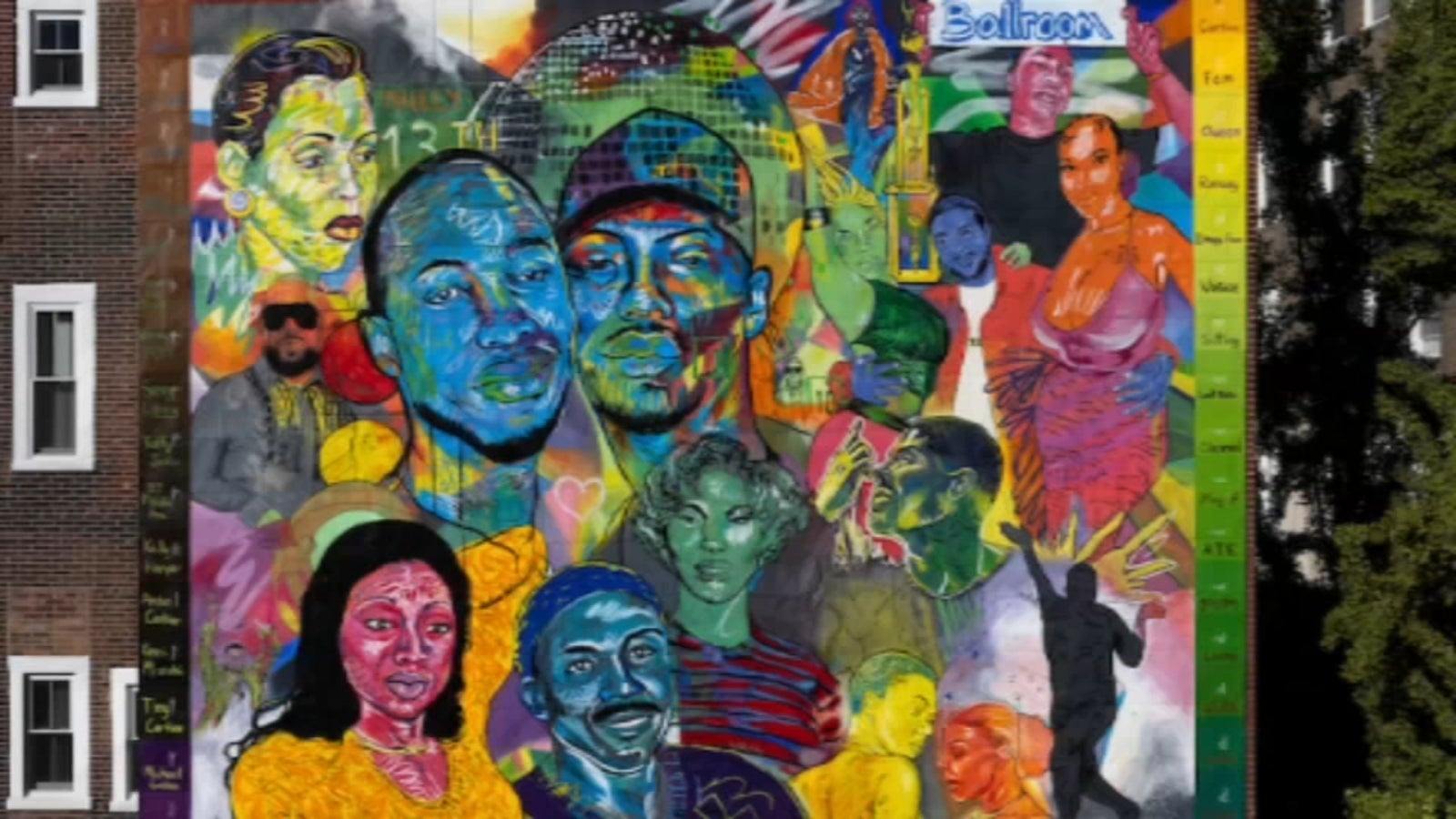Don’t trick yourself into thinking Gayborhood racism is new
Watching recent protests in the Gayborhood has brought on a strong case of déjà vu for me.

A small group protests racism in the Gayborhood by shutting down the street in front of ICandy. (Peter Crimmins/WHYY)
Like many, I’ve been watching the recent protests in the Gayborhood, following the release of a candid video, in which a principal owner of the club iCandy used the n-word — again and again — in describing some of his customers. This video came on the heels of reports that both iCandy and Woody’s were using unofficial dress codes to discourage people of color (POC) from entering — like “No Timberlands” and “No sweat suits,” etc.
Watching this all go down brought on a strong case of déjà vu for me.
In 1982 I helped launch Au Courant Newsmagazine, a weekly newspaper with a strong slant on arts and culture, dedicated to serving Philadelphia’s LGBT community. As general manager, one of my main responsibilities was to handle the advertising accounts from all bars and clubs. To do so, I spent just about every night out and about and quickly discovered the unmentioned segregation that existed in Philly’s gay nightlife.
Sure — there were POC at just about every bar, however the bar culture echoed the city in general: the blacks kept to their bars, the whites to theirs. Personally, some of my favorite memories (and best dance nights) were in the bars that catered to POC.
I remember meeting my one circle of friends — all POC — at one’s apartment before heading out for the night and watching them pick apart where they wanted to go and where they weren’t allowed. The process was painful for me to view, because it was my first face-to-face understanding of the constant struggle my friends faced; both in the gay club scene and in life generally.
When I say “not allowed,” understand naturally they were allowed in the eyes of the law. But certain clubs would ask POC for two forms of ID (at a time when no ID was needed for most bars and clubs). Once inside, I’d watch as they were passed over by various bartenders time and time again — to the point that we all decided that I would be the “drink getter” whenever we went out as a group.
I feel the main difference between then and now is the overall awareness of society in general.
Getting attention on this discrimination was a true uphill battle as many community groups were focused on trying to grasp the oncoming health pandemic. Thankfully there was Black and White Men Together, a group that really worked hard to make this issue important in the eyes of the community at large. BWMT worked to create a Coalition on Lesbian and Gay Bar Policies. Its members included many lesbian and gay religious groups as well as the Philadelphia Lesbian and Gay Task Force.
Together they created a uniform policy for local bars. Most complied until the spotlight was turned off. Then they went back to their previous behaviors.
 (Bob Skiba / John J. Wilcox, Jr. Archives at William Way LGBT Community Center)
(Bob Skiba / John J. Wilcox, Jr. Archives at William Way LGBT Community Center)
Fast-forward 30 years, and here we are — dealing with the same casual discrimination we dealt with before. The only major difference is that there is more appreciation now that we should be doing the right thing.
While I don’t have the answers, I do know one thing: This problem is not a “people of color” problem. This problem is ours. White members of the LGBT community like me bear the responsibility to correct these wrongs. It is up to us to open our eyes and call out moments of discrimination that we witness. The only way to create a chorus of change is with everyone singing, loud and proud. In other words, to quote Gypsy: “Sing out, Louise!”
—
Robert Drake has worked in Philadelphia media and public relations for almost 35 years. For the past 29 years, Robert has been with WXPN-FM as producer of the Peabody Award-winning program “Kids Corner” with Kathy O’Connell. Robert also hosts “Q’zine,” a queer audio magazine, and “Land Of The Lost,” a monthly ’80s rock program. Robert also DJs a monthly New Wave dance party called Sex Dwarf.
WHYY is your source for fact-based, in-depth journalism and information. As a nonprofit organization, we rely on financial support from readers like you. Please give today.




